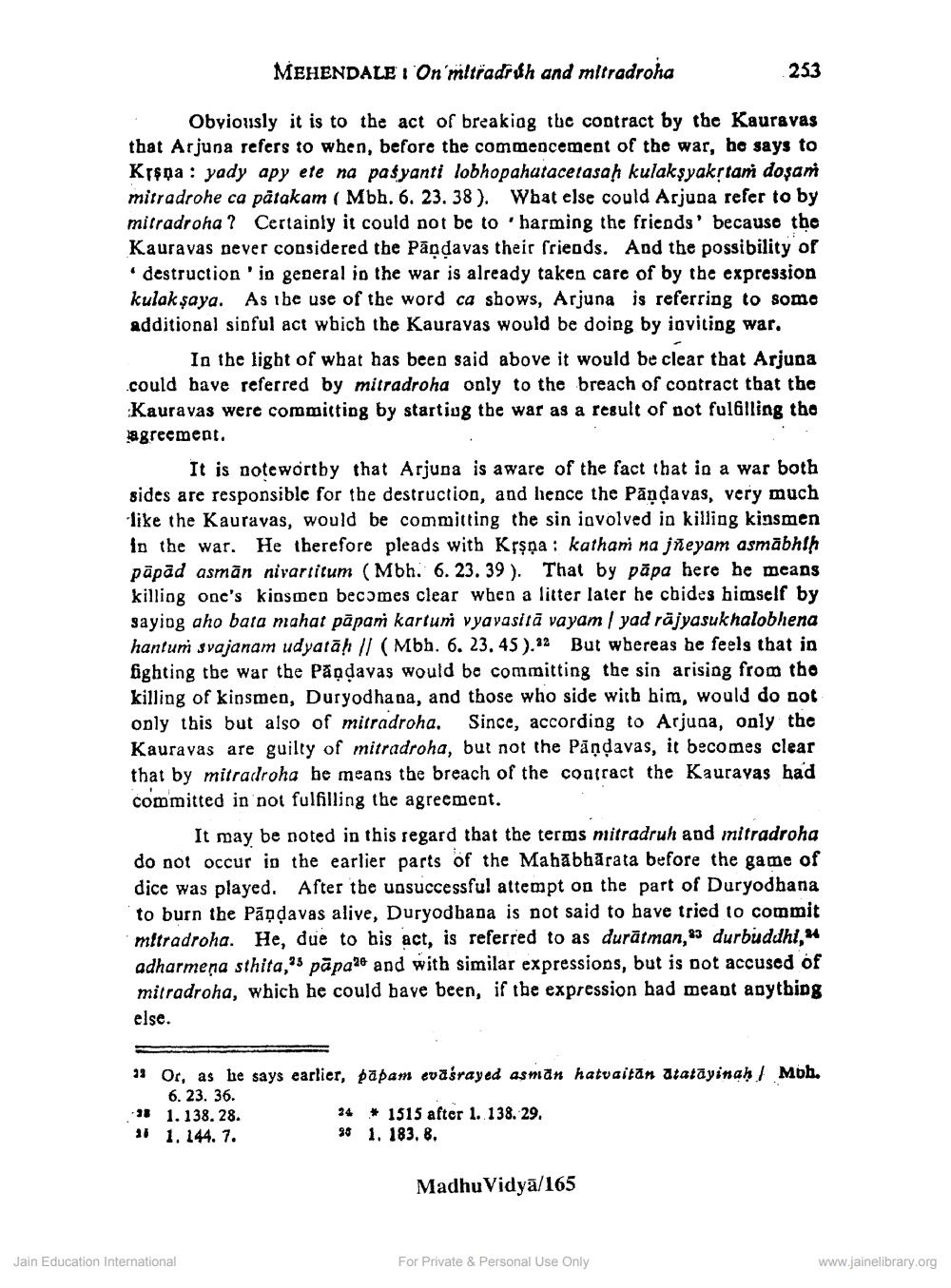________________
MEHENDALE I On'mltradráh and mltradroha
233
Obviously it is to the act of breaking the contract by the Kauravas that Arjuna refers to when, before the commencement of the war, he says to Krepa : yady apy ete na paśyanti lobhopahatacetasah kulaksyakstam dosani mitradrohe ca pătakam (Mbh. 6. 23. 38). What else could Arjuna refer to by mitradroha? Certainly it could not be to 'harming the friends' becauso the Kauravas never considered the Pandavas their friends. And the possibility of
destruction ' in general in the war is already taken care of by the expression kulak saya. As ibe use of the word ca shows, Arjuna is referring to somo additional sinful act wbich the Kauravas would be doing by inviting war.
In the light of what has been said above it would be clear that Arjuna .could have referred by mitradroha only to the breach of contract that the Kauravas were committing by starting the war as a result of pot ful6lling the agreement.
It is noteworthy that Arjuna is aware of the fact that in a war both sides are responsible for the destruction, and hence the Pāņļavas, very much like the Kauravas, would be committing the sin involved in killing kinsmen in the war. He therefore pleads with Krşņa: kathani na jneyam asmābhih pāpad asmān nivartitum (Mbh. 6. 23. 39). That by păpa here he means killing one's kinsmen becomes clear when a litter later he cbides himself by saying aho bata mahat pāpam kartun vyavasitā vayam / yad räjyasukhalobhena hantum svajanam udyatā) // (Mbh. 6. 23.45).32 But whereas he feels that in fighting the war the Pandavas would be committing the sin arising from the killing of kinsmen, Duryodhana, and those who side with him, would do not only this but also of mitradroha. Since, according to Arjuna, only the Kauravas are guilty of mitradroha, but not the Pāņļavas, it becomes clear that by mitradroha he means the breach of the contract the Kauravas had committed in not fulfilling the agreement.
It may be noted in this regard that the terms mitradruh and mitradroha do not occur in the earlier parts of the Mahabharata before the game of dice was played. After the unsuccessful attempt on the part of Duryodhana to burn the Pāņdavas alive, Duryodbana is not said to have tried to commit mitradroha. He, due to his act, is referred to as durātman, 3 durbuddhi, adharmeņa sthita,as pāpa2e and with similar expressions, but is not accused of mitradroha, which he could bave been, if the expression had meant anything else.
Mbh.
13 Or, as he says earlier, papam evasrayed asman hatvaitan atatāyinah
6. 23. 36. -38 1.138.28.
24 # 1515 after 1. 138. 29. 11 1. 144. 7.
96 1. 183.8.
Madhu Vidyā/165
Jain Education International
For Private & Personal Use Only
www.jainelibrary.org




